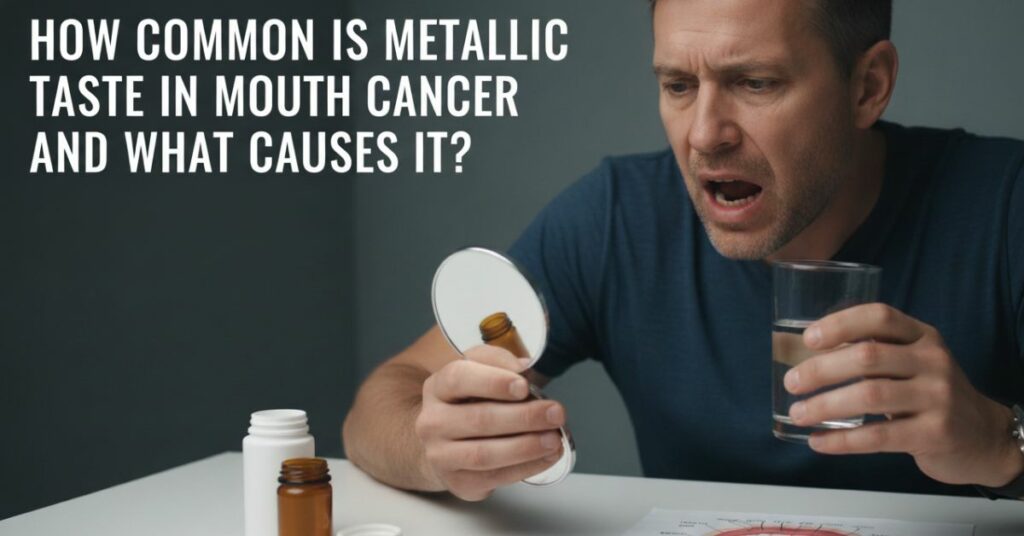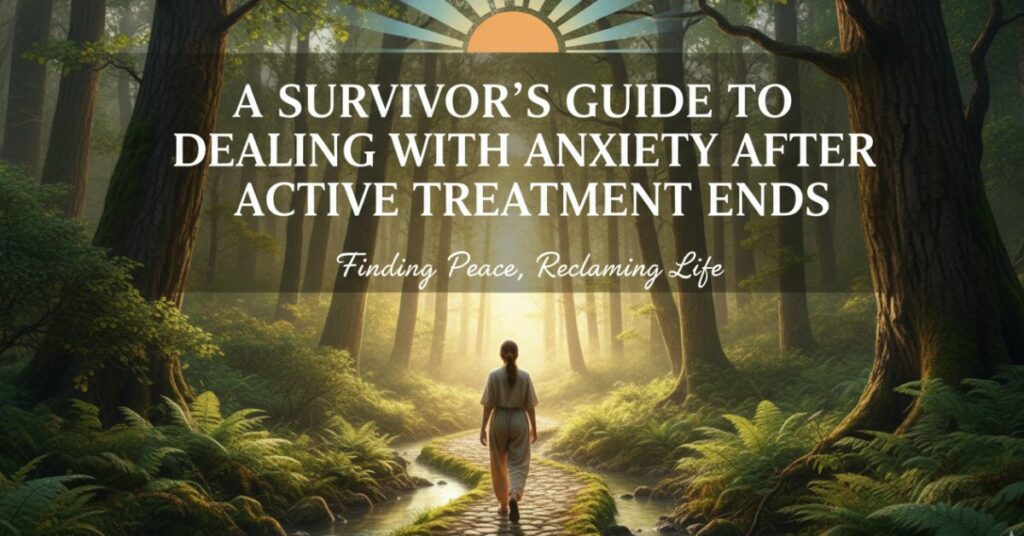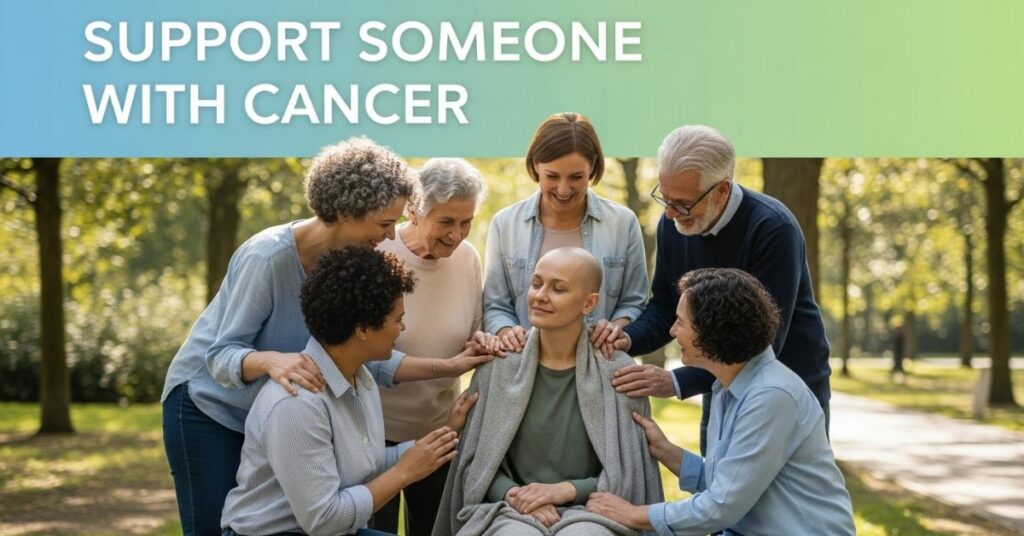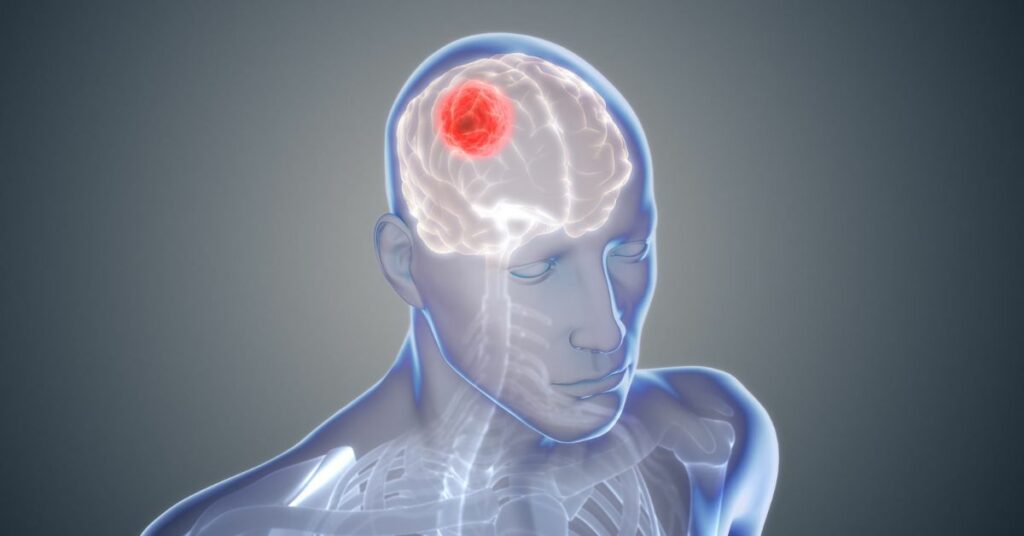Social Isolation After Cancer: Rebuilding Friendships and Connection

Do you ever feel disconnected from friends and family after cancer? Social isolation after cancer is more common than many people realize. Treatment disrupts routines, affects energy, and leaves survivors feeling distant from the life they once enjoyed. Emotional and physical fatigue make connecting with others challenging even when they want company Friends may not […]
How Common Is Metallic Taste in Mouth Cancer and What Causes It?

Mouth cancer can affect the tongue, gums, lips, or the lining of the mouth. Common symptoms include sores, lumps, difficulty swallowing, and changes in speech. Some patients also experience metallic taste in mouth cancer early in the disease or during treatment, which can affect appetite and eating habits. Recognizing metallic taste can be important. Changes […]
What to Eat When You Have No Appetite During Cancer?

Loss of appetite during cancer is common. Many patients struggle to eat enough during treatment, which can lead to fatigue, weakness, and slower recovery. Understanding what to eat when appetite is low helps maintain nutrition and energy. Food for cancer patients with no appetite should focus on small, easy-to-eat meals that provide protein, calories, and […]
A Survivor’s Guide to Dealing With Anxiety After Active Treatment Ends

Finishing cancer treatment is a huge milestone. But for many patients, it doesn’t mean life suddenly feels normal. Anxiety after cancer treatment is common. Even when the cancer is gone, the worry can remain. Many survivors feel uncertain, uneasy, or tense. Understanding why anxiety happens and how to manage it can make life after treatment […]
How to Support Your Loved Ones with Lung Cancer

Is your friend or a loved one battling with lung cancer, and you dont know how to deal with it? Supporting a loved one with lung cancer can feel overwhelming. You might not know what to say or how to help, and that is completely normal. Lung cancer affects not just the patient but also […]
Dealing with Scanxiety: What to Do Before Your Next Scan

When a scan is coming up, it is completely normal to start thinking about how to deal with scanxiety. The waiting, the uncertainty, and the reminders of everything you have already been through can make your mind feel unsettled. You might find it hard to sleep, struggle to focus, or notice your body feeling tense. […]
How Cancer Survivors Can Rebuild Their Immune System After Treatment

Completing cancer treatment is a major milestone. It marks strength, patience, and courage. Yet, recovery does not end when treatment stops. The body still needs time to heal. One of the most important parts of recovery is rebuilding immune system after chemotherapy. Chemotherapy and radiation target fast-growing cancer cells but can also damage healthy immune […]
How to Support a Cancer Survivor: Practical Tips for Family and Friends

When someone you love is diagnosed with cancer, it can be hard to know what to do. You may want to help but feel unsure where to start. Real care is not about finding perfect words or making big gestures. It comes from being present, showing patience, and offering steady help. Learning how to support […]
10 Questions Every Cancer Patient Should Ask Their Doctor Before Treatment

Hearing the word cancer changes everything. In that moment, your mind fills with questions and uncertainty. Before starting treatment, it’s important to talk openly with your oncologist. The right questions help you understand what’s ahead, what choices you have, and how to prepare yourself and your loved ones. If you’re unsure where to begin, here […]
Brain Cancer Signs That Are Frequently Misdiagnosed

Brain cancer misdiagnosis is far more common than the average person might realize. Brain cancer has very subtle early symptoms that may lead to incorrect diagnosis, lost time, and delayed treatment. Many survivors look back at symptoms they dismissed as stress or migraines, that turned out to be symptoms of something far worse. We need […]

